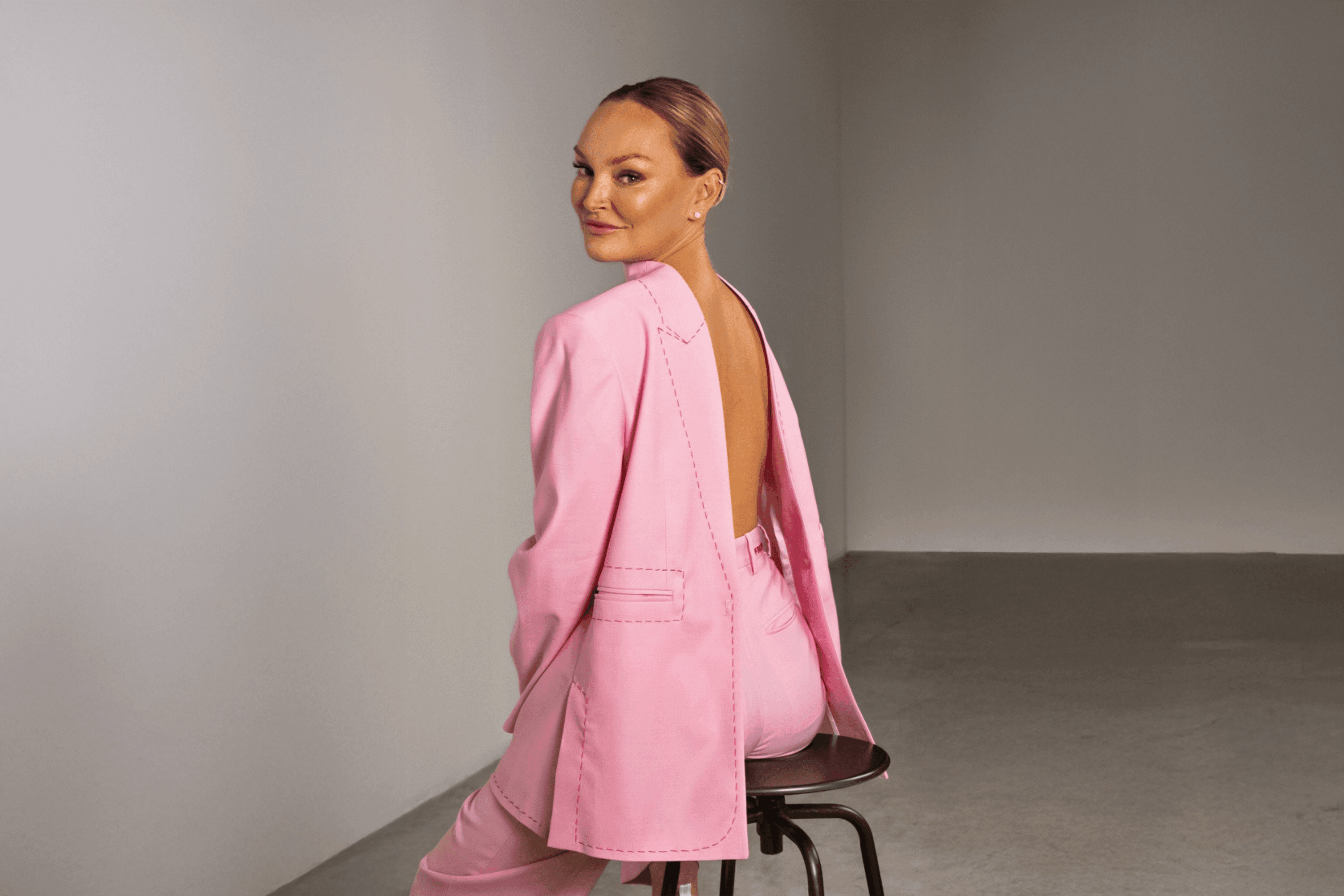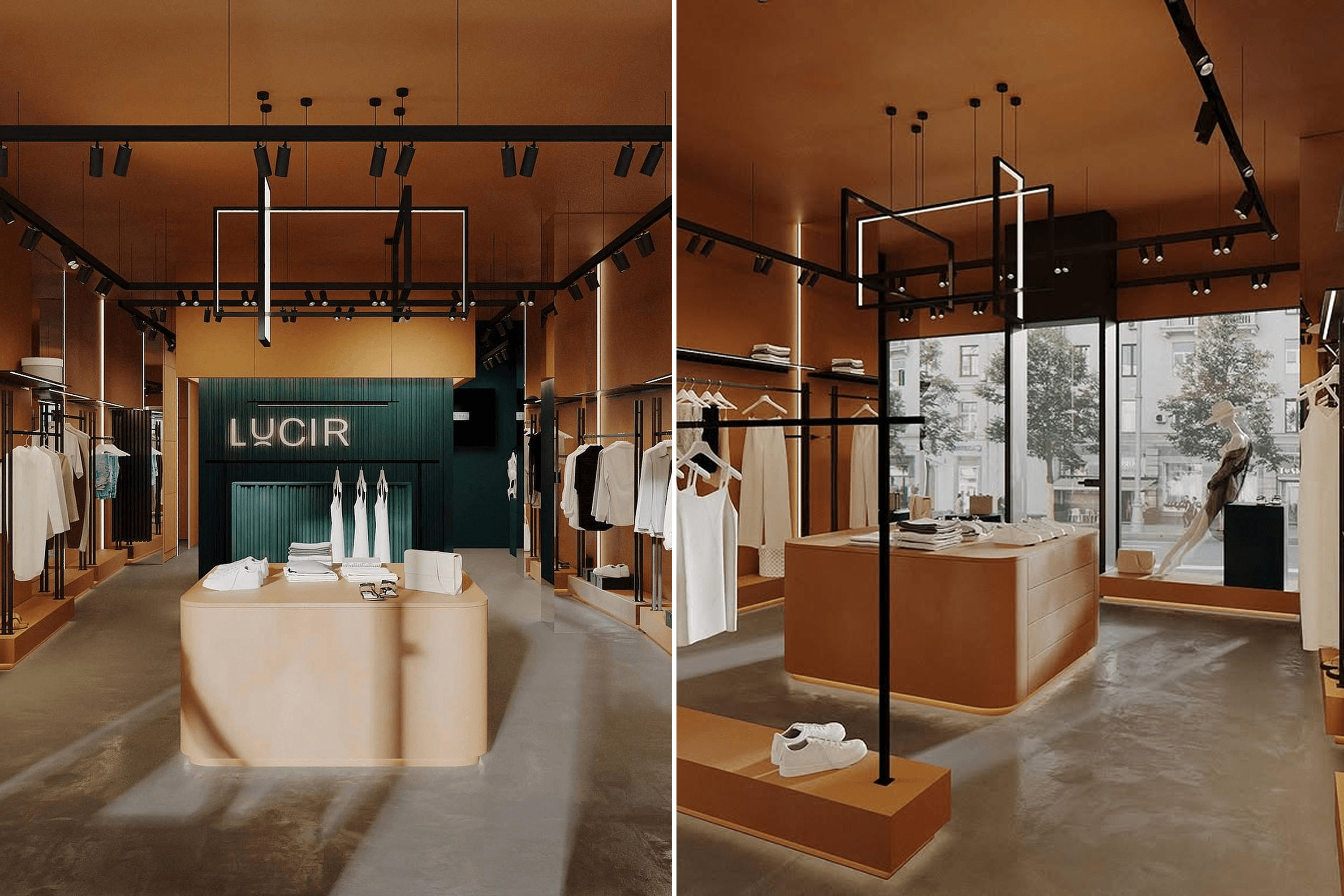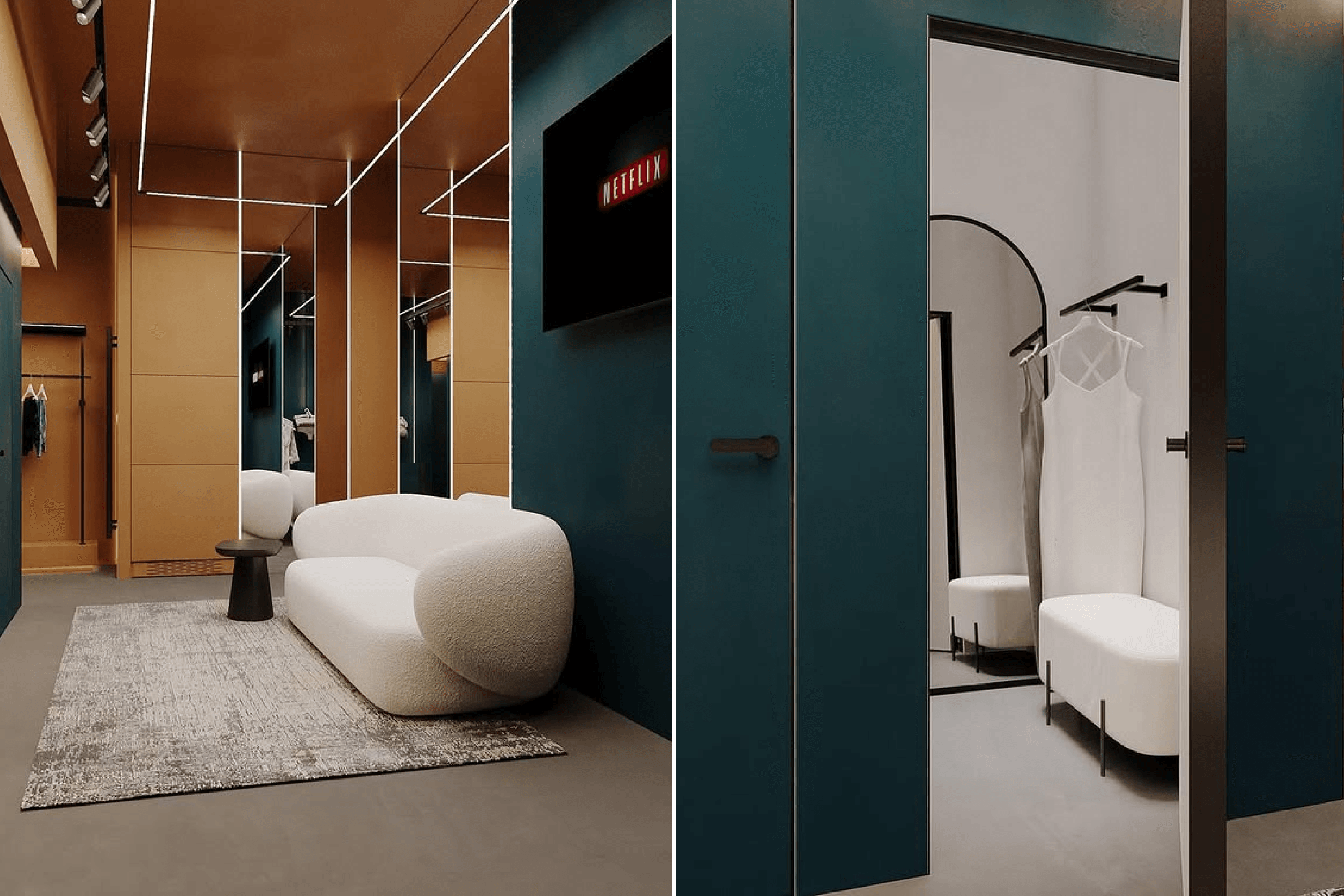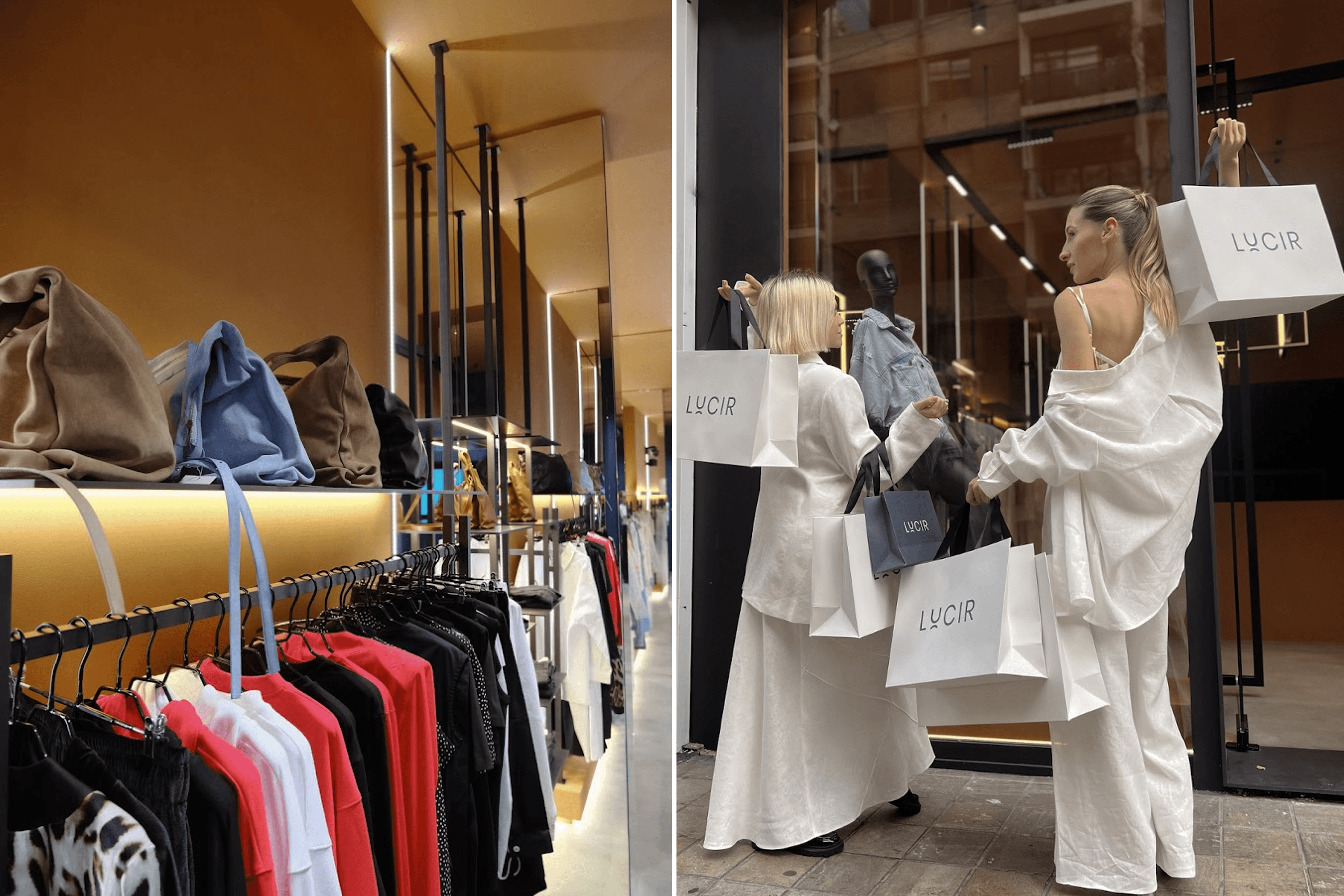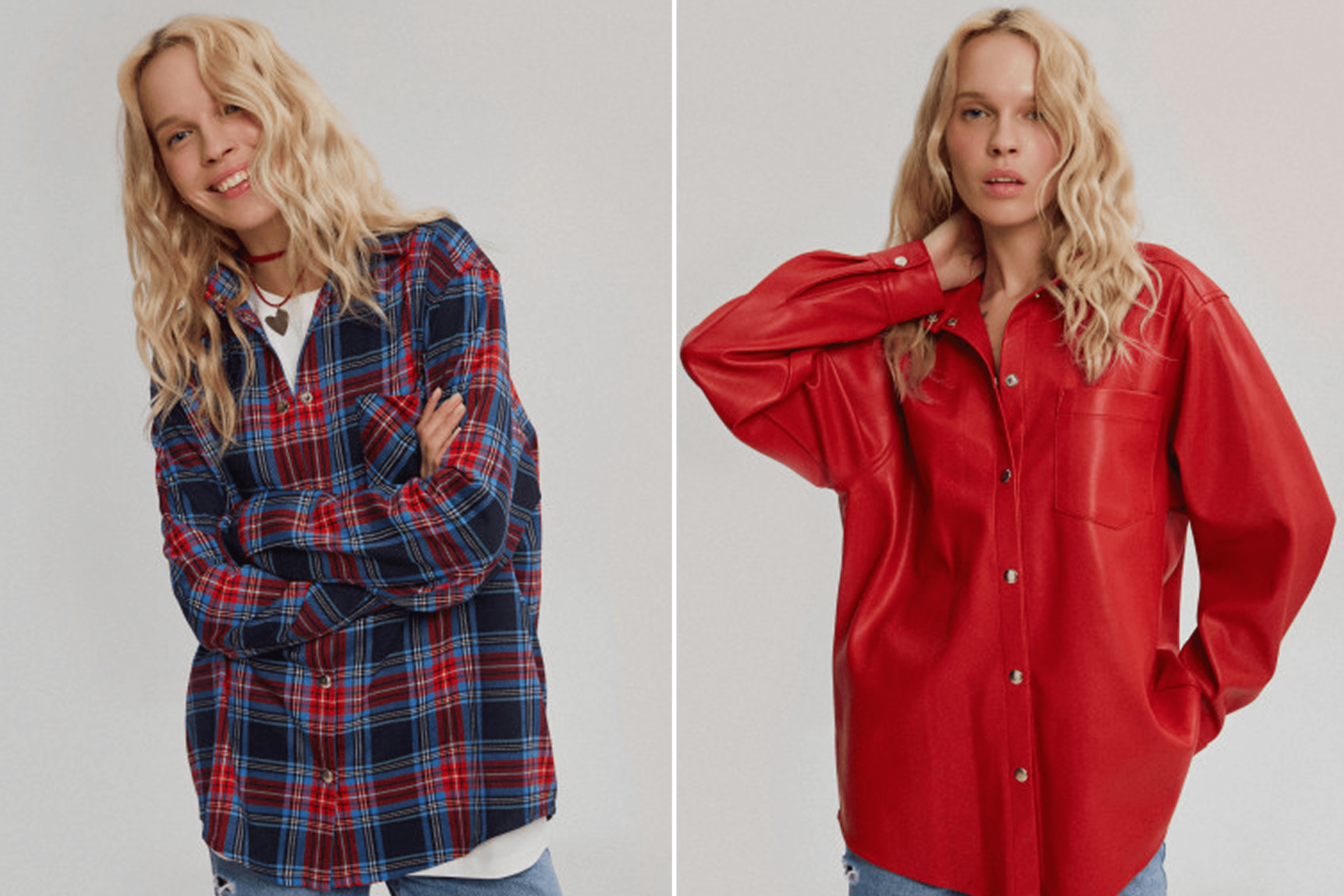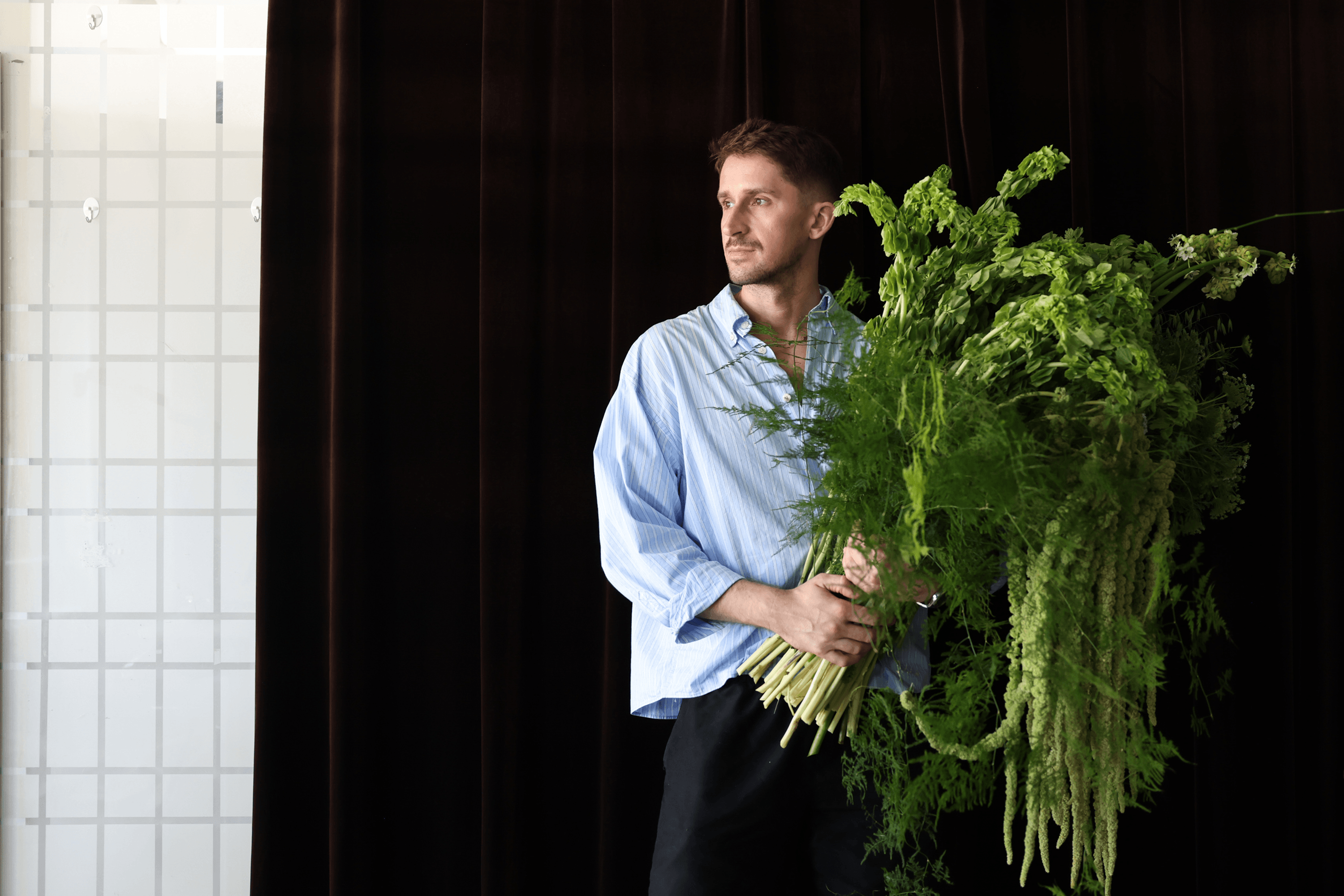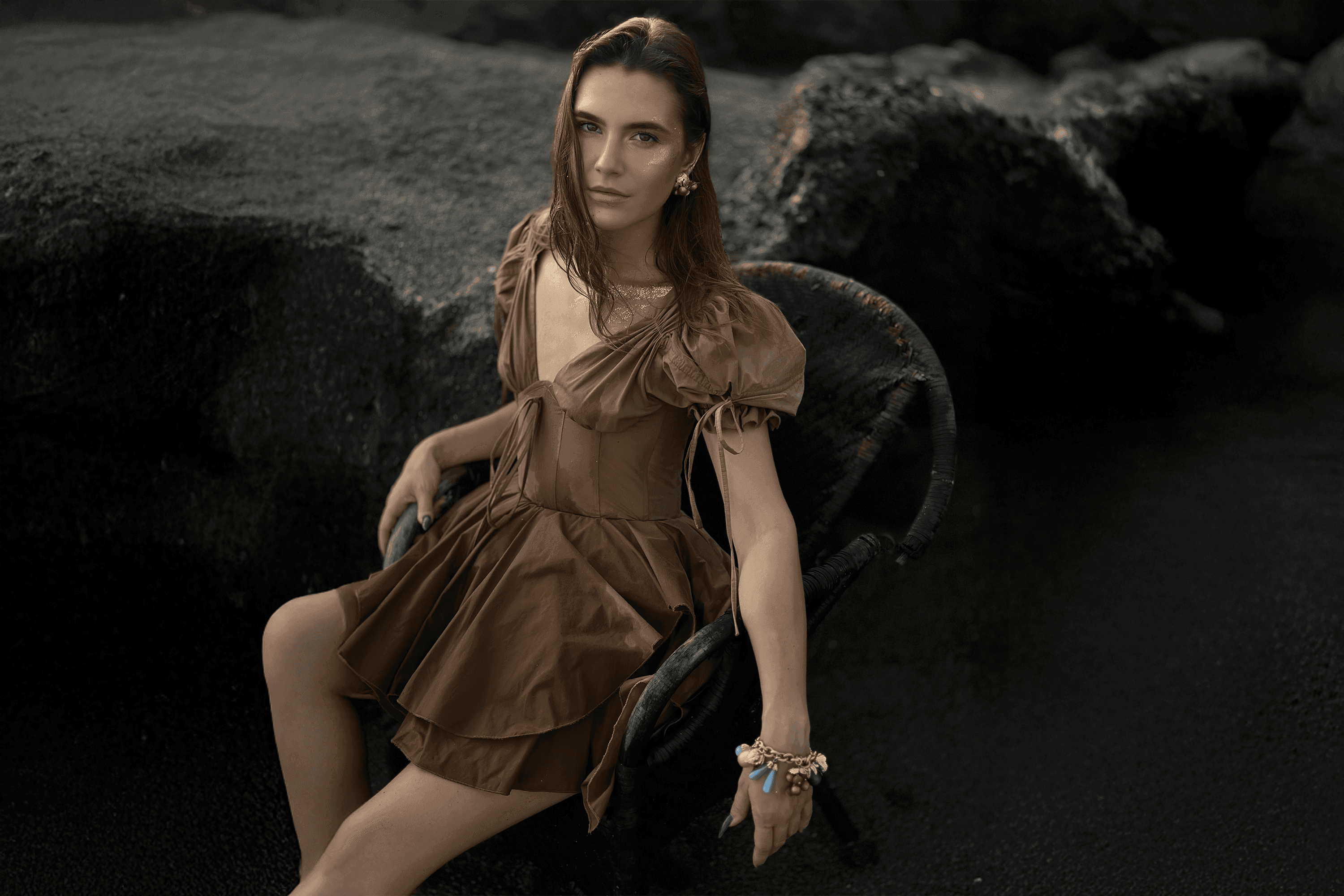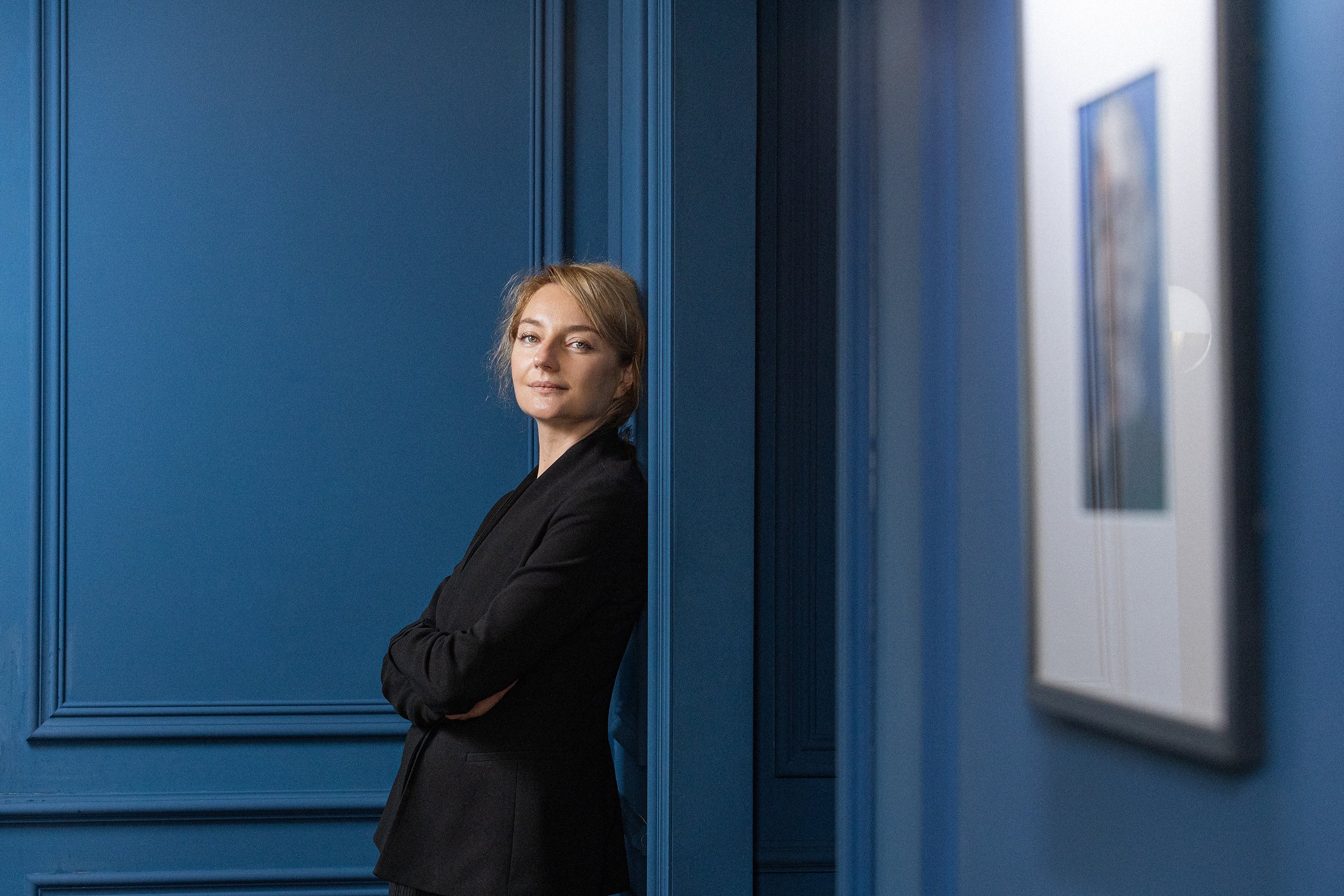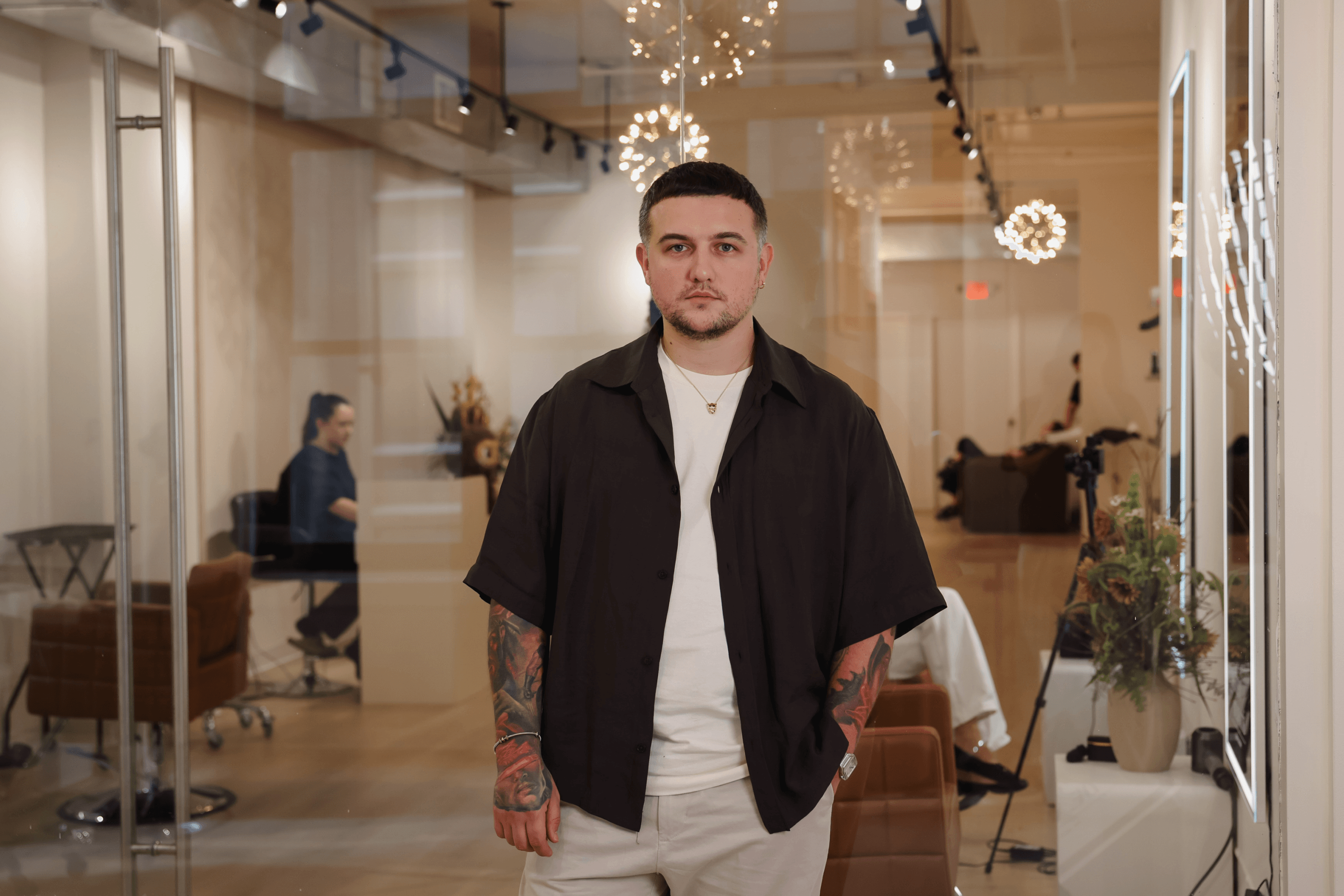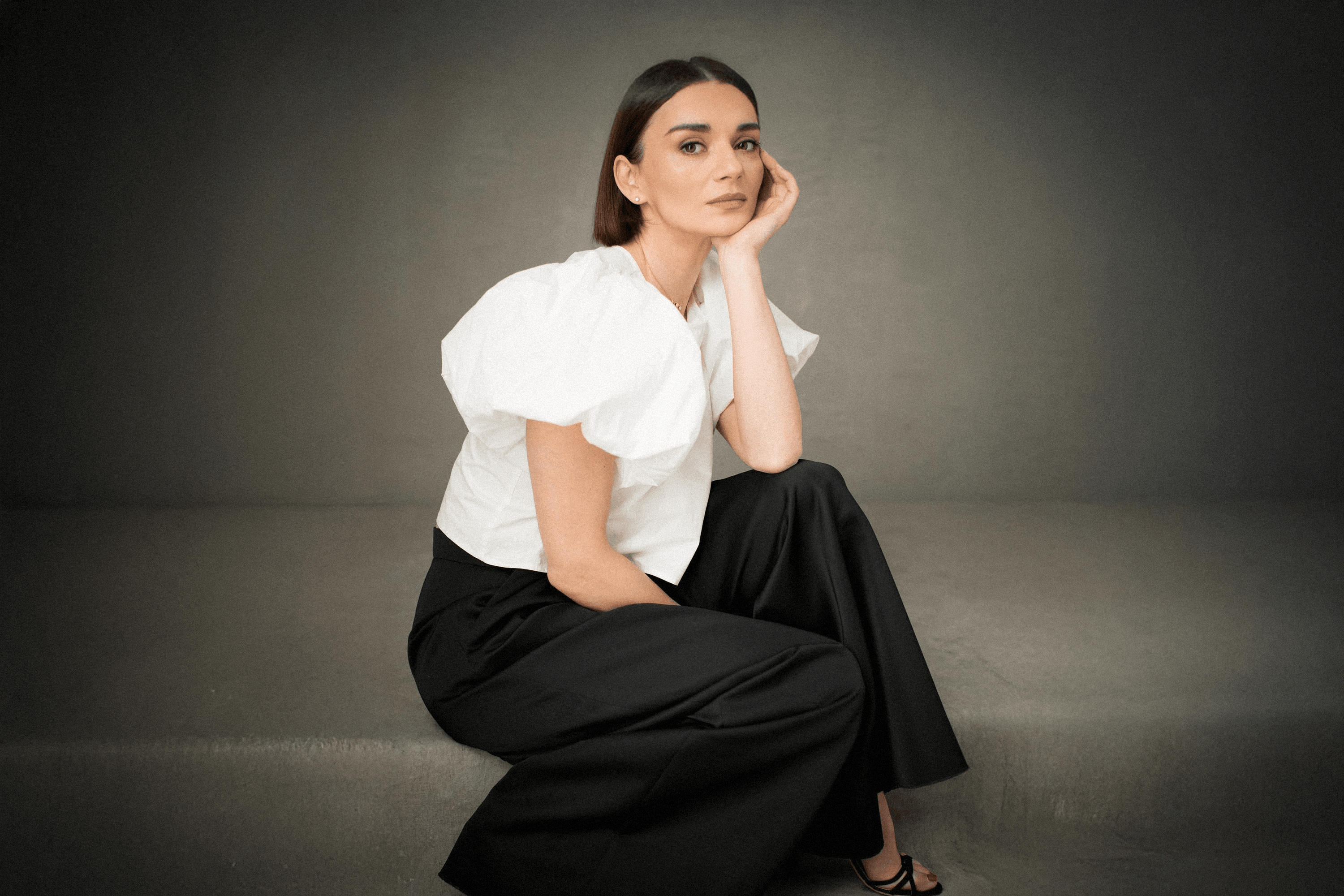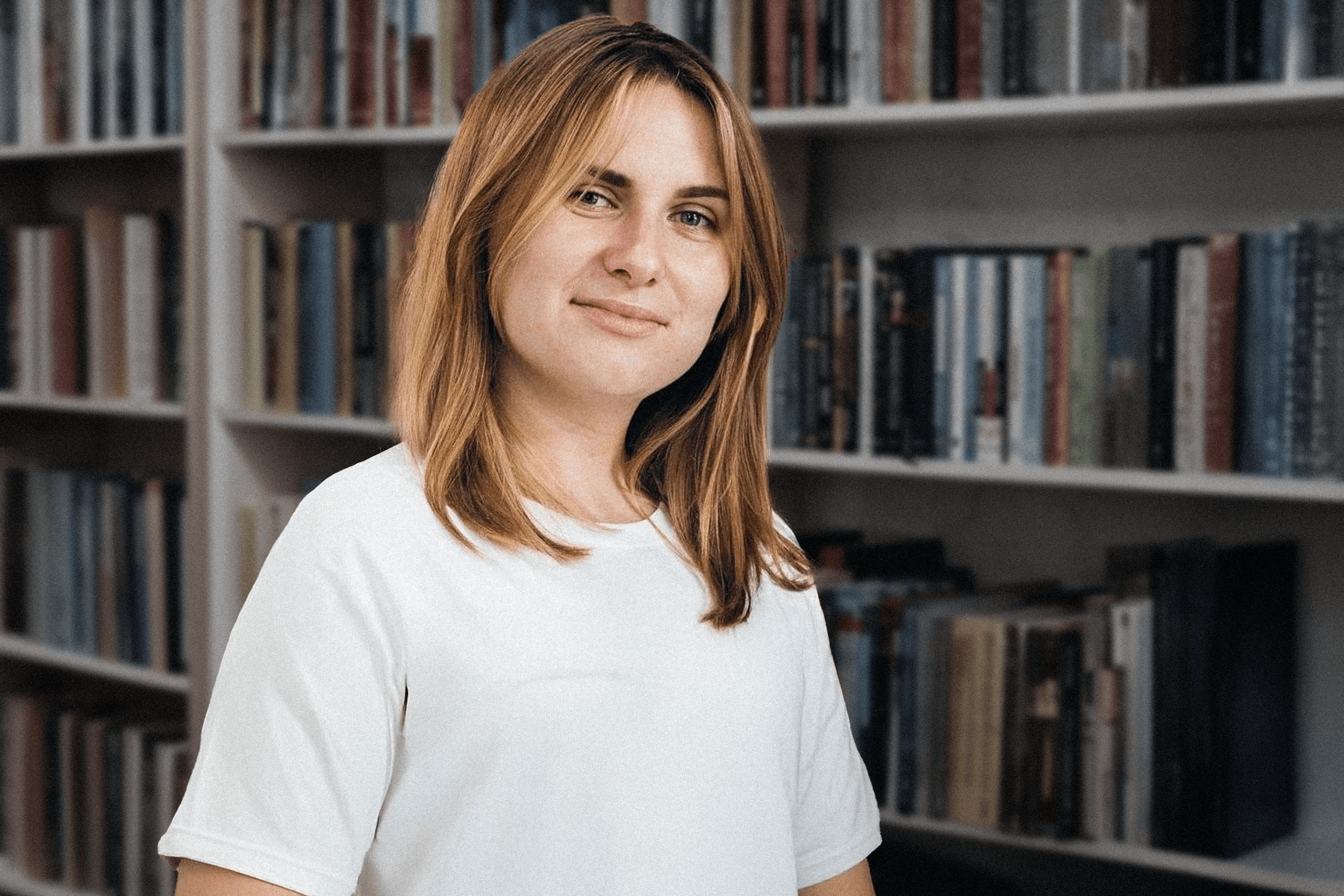In 2019, Iryna Nosova, a former English teacher, and her husband Volodymyr launched Gum, a high-end fashion boutique in downtown Kharkiv. What started as a single store soon evolved into a multi-brand network, offering luxury, youth, and sportswear collections.
However, the full-scale war in 2022 forced them to close their business in Ukraine. Seeking safety, the Nosov family relocated to Valencia and by October 2023, Iryna had launched a new boutique, Lucir, featuring the designs of 30 Ukrainian designers. For Spanish customers, Lucir offered personalized service and exclusive fashion pieces unavailable elsewhere in the local market. Within just 11 months, the boutique became self-sustaining, and expansion plans are already in motion for new locations in Madrid and Barcelona.
Journalist Roksana Rublevska explores how Iryna successfully built a thriving business from the ground up.
1
Iryna Nosova was born in Kharkiv. She gained degrees in English language teaching and economics, completed her PhD in the 2010s, got married, and had a daughter. She taught English at Skovoroda Pedagogical University, but her salary barely covered the essentials. Meanwhile, her husband, Volodymyr, had already established himself as a successful entrepreneur. Seeing Iryna’s potential, he encouraged Iryna to start her own business. Iryna says that his support was crucial in her decision: “With him by my side, I fear nothing. There was a time when he worked day and night to ensure we had everything we needed. His greatest strength is his determination.”
Since Soviet times, Kharkiv has remained a centre for the textile industry, home to large factories specializing in clothing and fabrics. Iryna’s husband had a friend in the industry who helped her understand the business from the inside. This became her entry point, she began immersing herself in fashion, researching the market, and gaining deeper insights. Before long, the idea for Gum was born — a curated space showcasing the finest Ukrainian brands, all in one place.
The couple purchased a space in the bustling centre of Kharkiv, on Sumskaya Street — a prime location that promised high customer traffic. In December 2019, Gum officially opened its doors. However, just a few months later, the store was forced to temporarily close due to the COVID-19 pandemic. Iryna and Volodymyr’s team had to adapt quickly to the new reality. In the end, they shifted their focus to online sales, which became their key strategy for staying afloat.
Iryna and Volodymyr decided to expand their business despite the challenges of pandemic restrictions. They launched Gum Select for high-end brands, Gum Street Style for athletic wear, and even opened a big coffee space Gum Café. The store represented 120 Ukrainian brands across 1,000 square metres. Iryna was responsible for selecting brands and managing staff, while Volodymyr handled the financial and administrative side. They grew the team from 2 to 20, where sales associates also served as stylists, helping customers create looks tailored to their style.
“I selected brands for Gum based on a simple principle: would I wear this myself or dress my children in it?” says Iryna.
She immediately fell in love with Ukrainian brands, even before meeting any of the designers in person. Her team handled outreach, connecting with them through websites and social media to propose partnerships. They worked on consignment, stocking collections, selling pieces, and paying designers from their income. Anything that didn’t sell was returned.
Developing local brands in Kharkiv wasn’t easy. Many shoppers preferred clothing with global logos, even if they were replicas. A 200-euro piece by a Ukrainian designer often seemed expensive. But Iryna had faith. She was convinced that, in time, people would value the uniqueness, quality, and design that local brands could provide.
Gum had grown into a destination for personalized service and exclusive fashion. However, the business never had the chance to become self-sustaining. On February 24, 2022, war broke out. At that moment, business no longer mattered. Iryna’s thoughts were only on her family and her team.
“A week in, it was clear that the war wasn’t going to be over soon. We returned the stock to the brands, let go of our staff, and wrapped up all financial obligations within a month,” Nosova recalls.
2
They settled on Valencia. The city appealed to Volodymyr with its warm climate, strong infrastructure, and business opportunities. Its welcoming atmosphere also reminded them of their home in Kharkiv.
In the fall of 2022, Volodymyr once again encouraged Iryna to return to fashion and launch her own business. The Spanish market, with its curiosity for new names, felt like an ideal opportunity to introduce Ukrainian luxury brands. But Iryna faced a whole new set of challenges — a new country, a different language, an unfamiliar business landscape, and a whole new customer base.
However, the experience she had gained in Ukraine was invaluable. For nearly a year, she researched the market and studied local fashion trends. This is how LUCIR was born — a boutique designed to showcase Ukrainian designers and offer Spanish clients exclusive, carefully curated collections.
“Lucir’s mission is to prove that Ukrainian fashion belongs on the global stage,” Iryna sums up.
Now, her team is working to establish the brand’s presence across Europe.
The word “lucir” in Spanish means “to shine, to glow, to wear with confidence.” It became more than just the name of the boutique, it defines the boutique’s philosophy: it highlights individuality and celebrates confidence. Lucir is located on Poeta Querol Street, right in the heart of Valencia, in the area known as “Golden Mile”, the city’s most exclusive fashion destination. Iryna describes the boutique’s interior as a blend of minimalism and functional design. Mirrored panels expand the space, while a large statement table serves as the focal point, drawing attention to accessories. Open rails and LED lighting are deliberately designed to highlight the unique colours and rich textures of the clothing.
Lucir isn’t just a store, it’s a boutique in its true sense. Small, intimate, and focused on premium fashion, it offers exclusive designer collections and a tailored shopping experience. Clients can schedule one-on-one styling sessions to find the perfect look for a special occasion. If a purchase doesn’t work out, they have 14 days to exchange or return it, as long as the item is unworn, with original tags and packaging.
“I believe we’ve created a space people will want to return to,” says Nosova.
Launching the business in Valencia cost the founders over €250,000 covering everything from rent and renovations to furniture, inventory, and legal permits. But some of the biggest costs weren’t immediately obvious — top-tier Italian mannequins at €2,000 each and professional lighting worth €10,000. According to Iryna, a high-quality mannequin holds the shape of a look, letting the outfit fall exactly as designed, while proper lighting enhances how a woman sees herself in the mirror.
Lucir currently employs four stylist-sales associates and a director. The main hiring requirement — Ukrainian women fluent in Spanish and English. Iryna notes that Spanish clients come to Lucir not only for clothing but also for the atmosphere. Shopping here is about the experience, personal attention, and the chance to chat about trends. Iryna intentionally prioritizes hiring Ukrainians. For her, it’s about more than business — it’s about supporting her community and creating opportunities for fellow Ukrainians abroad.
One of the hardest steps in launching Lucir was identifying the ideal customer and predicting their preferences. Nosova says the boutique caters to women over 35 who are confident, financially independent, and looking to refine or define their style.
Spanish customers are particularly drawn to pieces that stand out from what’s typically available. In Ukraine, many still favour “heavy luxury” — statement pieces with loud branding. Local buyers in Spain appreciate craftsmanship, unique designs, high-quality fabrics, and impeccable tailoring.
Within just 11 months, Lucir reached financial self-sufficiency. Sales vary with the seasons. Between April and July, as well as in December, the boutique sees up to 20 purchases per day, while in the fall, the number drops to around 15. August turned out to be the slowest month, largely due to the heat and Spain’s vacation season.
Nosova personally selects the designers, evaluating quality, authenticity, and alignment with local customer tastes. Transparency in business operations is also essential. Many Ukrainian brands struggle to enter the European market due to bureaucratic obstacles. Some still operate without legal or accounting support, lacking official invoices for materials or contracts with manufacturers. This makes proving product origins at customs difficult, leading to high import taxes. “Shipping, logistics, and customs fees make up 40% of the product’s cost, which is why we have to turn down many brands,” Nosova explains.
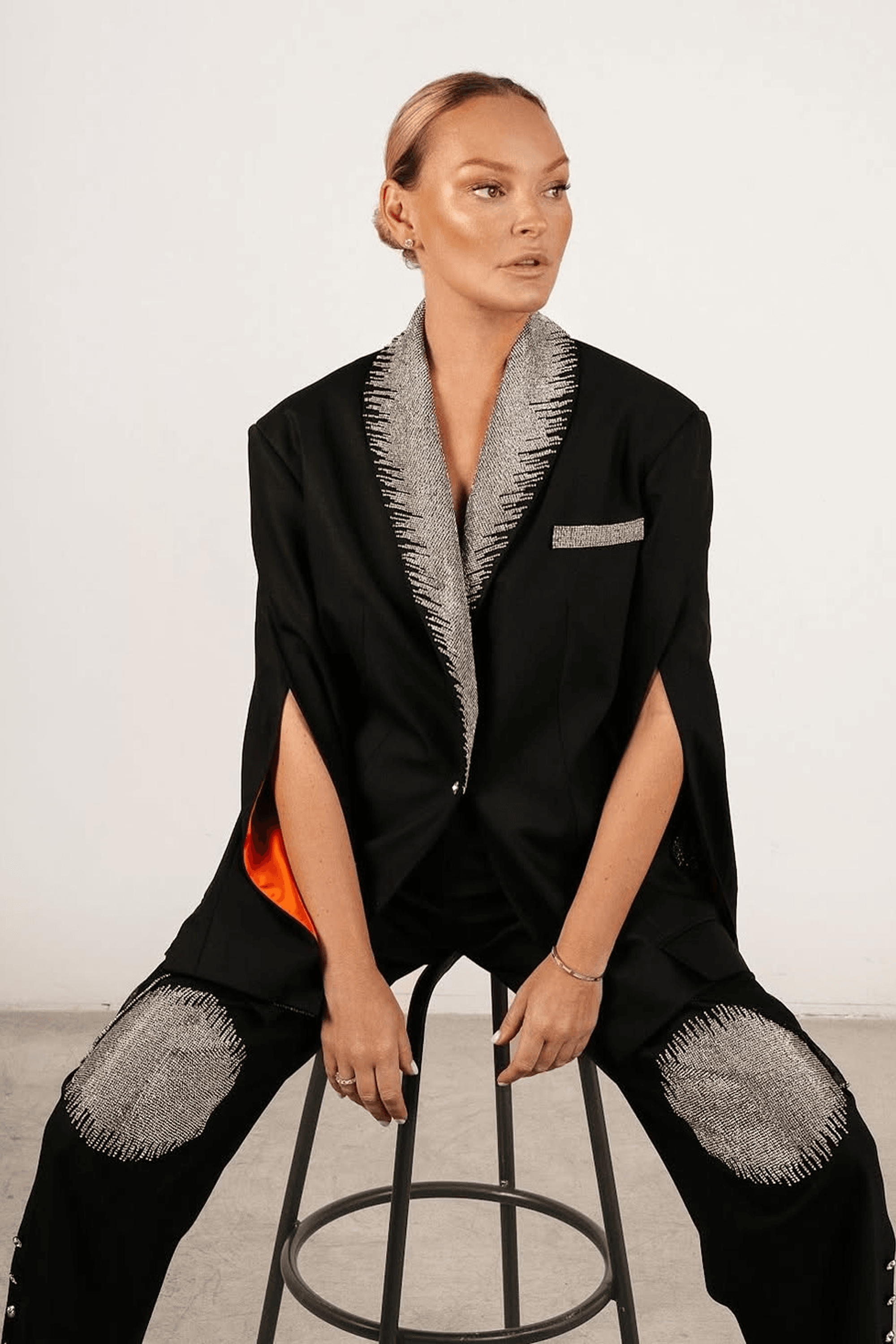
Lucir currently represents 30 Ukrainian brands, offering a mix of premium and more affordable fashion. The collections include luxury pieces from internationally recognized designers such as Frolov, Ruslan Baginskiy, and Gasanova. At the same time, there are also more accessible brands like Tsvite Teren, starting at €100, and One by One, starting at €50. This diversity shows that Ukrainian designers can offer high-quality, competitive fashion and premium quality within the mass-market category. For instance, Vika Adamska’s brand is comparable to Massimo Dutti in quality and design. However, it stands out with the use of finer materials, a more exclusive production scale, and meticulous attention to detail.
The undisputed bestseller at Lucir is KSENIASCHNAIDER. Known for its mix of sustainability, quality, and bold design, the brand’s pieces average around €400. Spaniards value upcycling, and KSENIASCHNAIDER’s ability to turn vintage denim into high-fashion pieces makes it a perfect fit for the market.
In the fall of 2024, storm DANA swept through Valencia. While the store itself wasn’t damaged, the decline in tourism led to slower sales. By December, business had stabilized, but Iryna’s thoughts, much like during the war, were on the people rather than profits. Many families in the province lost their homes. She opened her doors to those in need, delivered food, and brought warm clothing to affected areas. She doesn’t like to talk about it much, insisting that it was a personal decision, not a business initiative.
3
Lucir was built on the idea of approachable, respectful service, avoiding the pretentiousness often found in high-end fashion. “I remember walking into luxury boutiques in Ukraine and feeling judged, even though I could afford anything in the store. That experience pushed me to create a place where everyone is treated with respect — whether they’re shopping or just looking for inspiration,” Nosova explains. For Iryna, Lucir is more than just a business. “I have two daughters, and Lucir is my third child,” she says.
Lucir also avoids buying large quantities of the same pieces. The goal is to ensure that women in Valencia don’t find themselves wearing the same dress at an event. Each design is available in only a few sizes — XS, S, M, and L.
“In Ukraine, fashion still revolves around one ideal body type — thin. If you’re not an XS, shopping for designer pieces becomes frustrating. Brands primarily design for model-sized figures, and age plays a role too. Women over 45 are expected to dress appropriately, meaning no bold colours, no dramatic cuts or statement silhouettes. Social expectations push them toward more modest dressing.”
“In Spain, the mindset is completely different. Women have the right to wear what they like, free from outdated beauty standards. Here, beauty isn’t defined by age or size, and that’s exactly what we emphasize. Fashion isn’t about restrictions, it’s about self-expression.”

Beyond selling clothing, Lucir has taken on another important mission — promoting Ukrainian fashion in Europe. But that’s a challenge — Spanish consumers are deeply loyal to local brands. The undisputed leader, founded by Amancio Ortega — Inditex, the world’s largest fashion retailer, dominates the industry. Inditex brands like Zara, Massimo Dutti, and Stradivarius define affordable, trend-driven fashion. Even high-end shoppers don’t shy away from shopping at these stores. The Spanish approach to fashion isn’t about displaying status through logos, it’s about valuing quality in every aspect. This philosophy broadens to Spanish culture in general: there is a deep appreciation for craftsmanship and timeless style but without the need to show it off.
Inditex grew from a small business in Galicia into a company that now shapes global fashion trends. Its success comes from a fast-moving business model, where collections change almost monthly, giving shoppers a feeling of exclusivity.
Lucir, however, is not competing with Inditex. It serves an entirely different niche, focusing on rare, limited-edition pieces that stand out in the Spanish market. In Spain, this type of shopping experience was previously available in large department stores like El Corte Inglés. However, after the pandemic, many boutiques closed, and the concept store segment almost disappeared, especially in Valencia. Lucir has filled this gap, offering customers more than just fashion — it offers a refined, carefully curated shopping experience.
“When our customers shop at Lucir, they aren’t just buying clothing — they are supporting an independent Ukrainian fashion industry and the craftsmanship that designers put into every piece.”
In 2025, Lucir aims to go beyond retail and become a space for cultural dialogue. Plans include hosting events with Ukrainian designers, stylists, and fashion experts, as well as educational sessions for women on topics like nutrition and psychology. “Our goal is to create a space where women uplift and inspire each other,” says the founder.
They are currently looking for a larger space that would allow for an in-house photo studio to showcase collections and a café. The company is also preparing to expand, with plans to open boutiques in Madrid and Barcelona soon.

